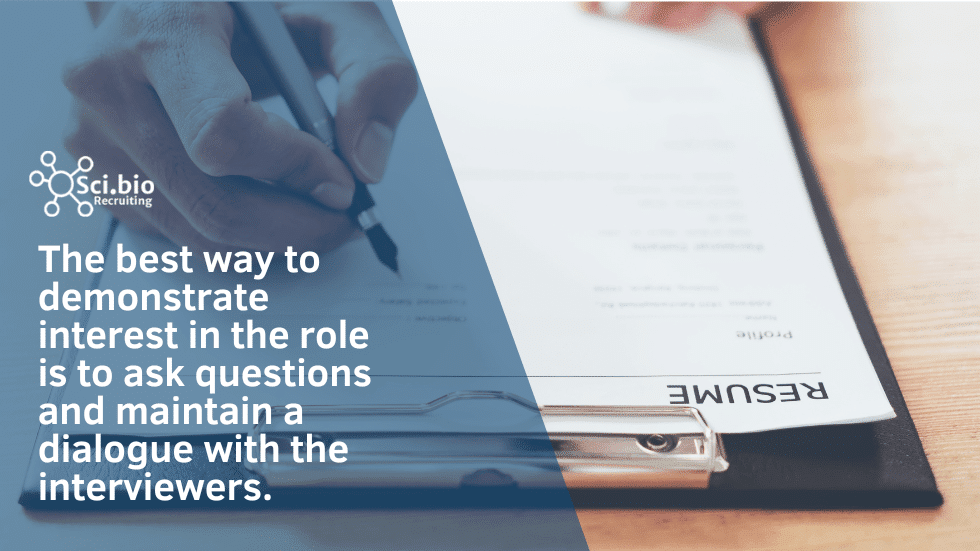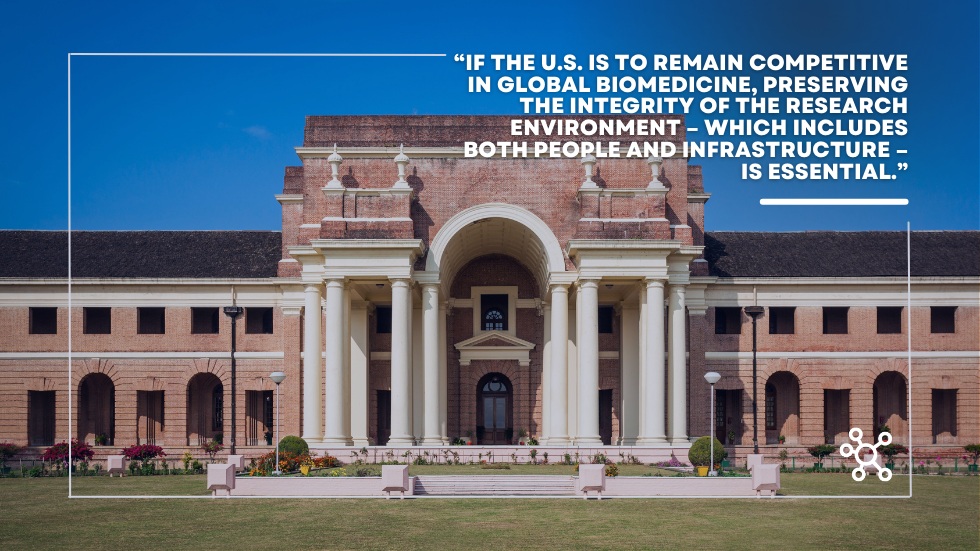Author: Claire Jarvis
Are you wondering what to expect at your biotech job interview? Before we get to that, congratulations on getting this far! Whether you are applying to your first STEM job after graduation, or re-entering the job market after a long time, the biotech interview process can appear intimidating. Fortunately, the recruitment process is fairly standard across the industry – with a few exceptions described below – and with a little bit of preparation you can shine every step of the way.
General Structure of Biotech Job Interview Process
The first step of the recruitment process is usually an HR screening call. The recruiter or HR representative will tell you about the company and the role in more general terms, and assess your basic suitability for the role: whether you have the right qualifications and experience. The next stage is a call with the hiring manager, followed by technical or panel interviews. Panel interviews will usually involve senior employers across a variety of functions who will interact with you in their line of work. For instance, if you’re interviewing for a bench position, you may be interviewed by your potential line manager, the head of your department, and someone from finance or operations.
These interviews will delve deeper into your experience, competencies, and what the role involves. Depending on the technical role you’re applying for you might be asked to present on a scientific topic (e.g. your thesis project), or complete a timed/take-home assessment.
A biotech job interview will often be via video conference (Microsoft Teams, WebEx or Zoom), though you may be invited for an in-person interview at the final stage if you live nearby.
If you found this job through a recruiter, expect them to follow-up with you after each stage to get your feedback. The recruiter will often do the majority of the interview scheduling, and talk to the hiring team on your behalf.
Background Research
It’s a good idea to prepare for the interview by gathering basic information about the company you wish to work for. Look at the company website, its LinkedIn pages and read through recent press releases or news articles about the company.
You want to get a general idea about the structure of the company (how many employees it has, where are its offices, etc), and if it’s expanding or changing its business focus. During the interviews you could be asked “what do you know about the company?” and you want to be able to give a brief but accurate answer. Were there any big approvals or results from clinical trials? Most interviewers are prepared to talk about the company, and answer your questions, so don’t feel shy about admitting you don’t know something.
For the later interviews (e.g. with the hiring manager, technical, panel) think about scenarios in previous jobs – or during school – when you had to deal/work with a difficult person, work in a team to solve a problem, deal with multiple challenging deadlines at once, etc. You’ll often be asked basic competency questions to see how you communicate and work with others, in addition to assessing the technical skills you bring to the role.
The best way to demonstrate interest in the role is to ask questions and maintain a dialogue with the interviewers. In the last few minutes of the call, ask a couple of questions about the state of industry, any changes in the industry or company the hiring managers are excited about; or why they enjoy working for the company. It reflects well on you if you have thoughtful questions to ask.
Different Companies Have Different Hiring Procedures
This interview process varies depending on the size of the company hiring. At a small biotech start-up there are usually fewer interview steps. You’re more likely to interview with company higher-ups such as the CEO sooner.
At larger biotechs of pharmaceutical companies the recruitment process is more formal, with more interview steps, and a greater number of people involved in each interview. It therefore might take longer to move through the interview process, since there are more people to schedule around, more candidates, and more internal bureaucracy prior to approving a new hire.
Overall, though the biotech interview process can feel exhausting and repetitive, exposure to multiple people will give you a good sense of the company culture, and allow you plenty of opportunities to get your questions answered.
Nervous about applying for a new STEM job? The friendly recruiters at Sci.Bio will be with you every step of the process to help you prepare. Connect with us to discuss your needs today.






